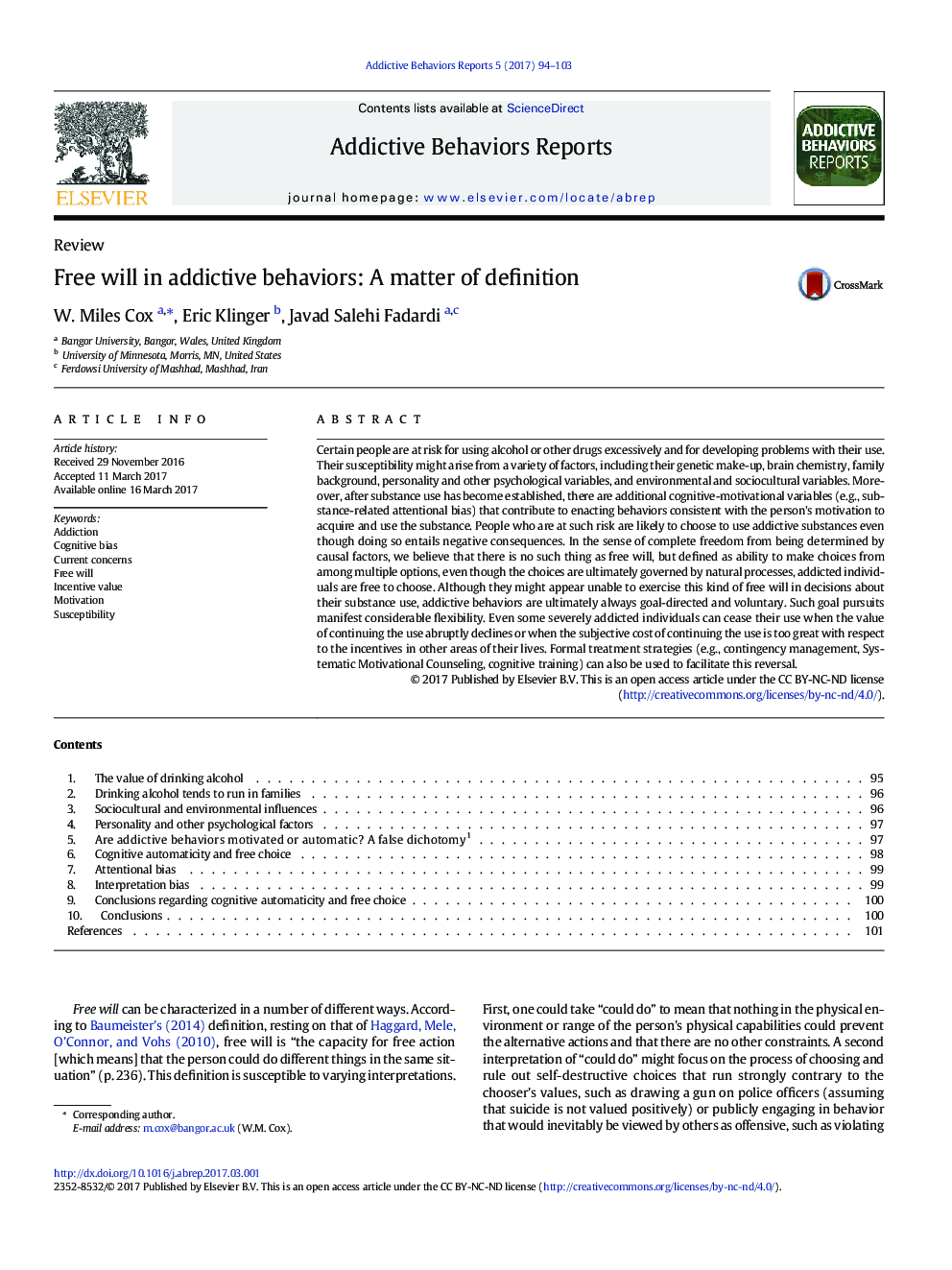| کد مقاله | کد نشریه | سال انتشار | مقاله انگلیسی | نسخه تمام متن |
|---|---|---|---|---|
| 5037960 | 1472538 | 2017 | 10 صفحه PDF | دانلود رایگان |
- The exercise of free will is choosing among actions but with certain limitations.
- The constraints include biopsychosocial factors that affect people's addiction risk.
- Automatic reactions to addiction-related stimuli also appear to limit free will.
- Addictive behaviors can, however, be changed and replaced by pursuit of other goals.
Certain people are at risk for using alcohol or other drugs excessively and for developing problems with their use. Their susceptibility might arise from a variety of factors, including their genetic make-up, brain chemistry, family background, personality and other psychological variables, and environmental and sociocultural variables. Moreover, after substance use has become established, there are additional cognitive-motivational variables (e.g., substance-related attentional bias) that contribute to enacting behaviors consistent with the person's motivation to acquire and use the substance. People who are at such risk are likely to choose to use addictive substances even though doing so entails negative consequences. In the sense of complete freedom from being determined by causal factors, we believe that there is no such thing as free will, but defined as ability to make choices from among multiple options, even though the choices are ultimately governed by natural processes, addicted individuals are free to choose. Although they might appear unable to exercise this kind of free will in decisions about their substance use, addictive behaviors are ultimately always goal-directed and voluntary. Such goal pursuits manifest considerable flexibility. Even some severely addicted individuals can cease their use when the value of continuing the use abruptly declines or when the subjective cost of continuing the use is too great with respect to the incentives in other areas of their lives. Formal treatment strategies (e.g., contingency management, Systematic Motivational Counseling, cognitive training) can also be used to facilitate this reversal.
Journal: Addictive Behaviors Reports - Volume 5, June 2017, Pages 94-103
